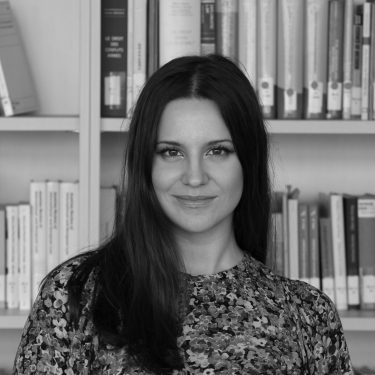March has already been a rather busy month on the blog, and as the second annual ‘Women in International Law’ symposium took over last week, you are only hearing from us with the Völkerrechtsblog’s monthly news now. That of course does not mean that we would let you spring into March without a recapitulation of February’s main international law developments, as the latter were featured on our blog. Here’s what you need to know:
In February’s first article, Isabella Risini explored the impact of school closures during the Corona pandemic in 2021 on the enjoyment of the right to education and the right to physical and psychological integrity. Shiva Sharifzad and Reza Khabook critically analysed Iran’s internet shutdowns and questioned whether they constituted a form of emergency derogation or human rights curtailment. Moreover, against the background of the recently issued judgement of the European Court of Human Rights on Fedotova v. Russia, Jens Theilen reflected on the future of sexual orientation and gender identity in human rights. Subsequently, Aaron Ramcharan underlined the significance of a revitalised global environmental organisation, and Tjorben Studt highlighted the necessity of a structural investigation into the cultural genocide in Ukraine.
Furthermore, Shinya Ito explored what the International Covenant on Economic, Social and Cultural Rights has to say about the problem of fuel poverty in the United Kingdom, while Teresa Weiß assessed whether Russia is violating the right to food through the invasion of Ukraine. Following the recent earthquakes that pledged Turkey and Syria, Ansgar Münichsdorfer argued that the portrayal of border crossings in north-west Syria as either ‘open’ or ‘closed’ is misleading and that the United Nations’ choice not to invoke Art. 59 (1) of Geneva Convention IV unnecessarily benefits al-Assad at the expense of the hard-hit population.
During February, a series of interviews were also published on the blog. The first interview of the month was conducted by Hendrik Simon, who interviewed Ntina Tzouvala on capitalism, racism, and the ongoing impact of ‘civilisation’ in the context of the symposium ‘International Law and the Political’. Furthermore, I am very happy to share that the tenth and eleven interviews of the symposium ‘The Person behind the Academic’ went online last month and I must say that chatting with Diane Desierto and Vladislava Stoyanova was fascinating. But of course, the end of February also brought the beginning of the Jessup season in Germany, which could not have left the blog untouched. Our Editor-in-Chief, Isabel Lischewski, took the opportunity and interviewed our publisher, Prof. Pierre Thielbörger, who shared with us the struggles and the joys that came with organizing this year’s Jones Day German National Rounds of the Jessup, as well as his outlook on the future of the competition.
Finally, February was a busy month for our Media section, too. This month’s Völkerrechtspodcast explored the right to privacy in the digital age. The section also featured the first Francis Lieber Lecture on International Law, in which Heike Krieger reflected on the war in Ukraine and on whether a realistic policy for the 21st century must break free from the shackles of self-imposed international law dogma. Finally, episodes 33 and 34 of the Völkerrechtliche Tagesthemen were published. In this context, Farnush Ghadery’s lecture offered a historical account of women’s rights and recent attempts at revolutions against oppressive state powers in Iran, focused on the ongoing revolution and underlined the importance of transnational solidarity. In episode 34, Justine Batura and Isabella Risini discussed the context and value of the third-State interventions on the occasion of the unprecedented number of member States have requested permission to intervene in the case Ukraine v. Russia before the European Court of Human Rights.
We hope you enjoyed February on the Völkerrechtsblog as much as we did, and we look forward to sharing with you the rest of this month’s fascinating content!

